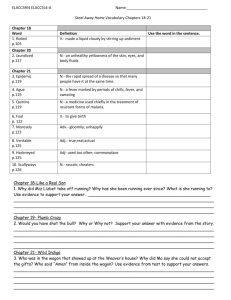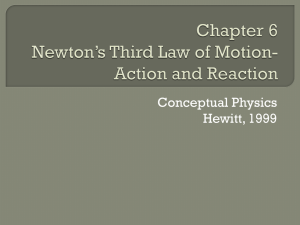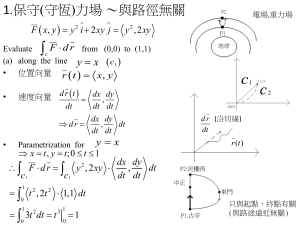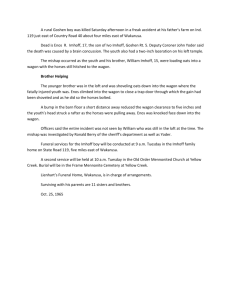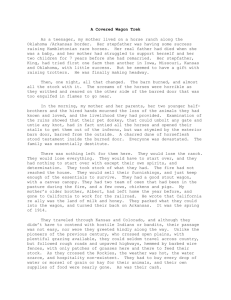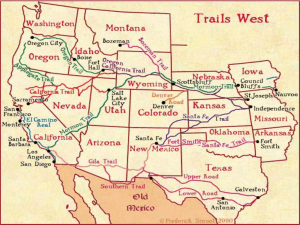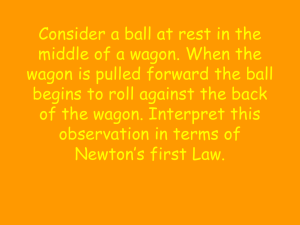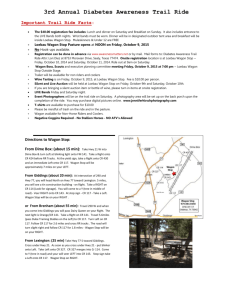The Kinematics of Projectile Motion
advertisement
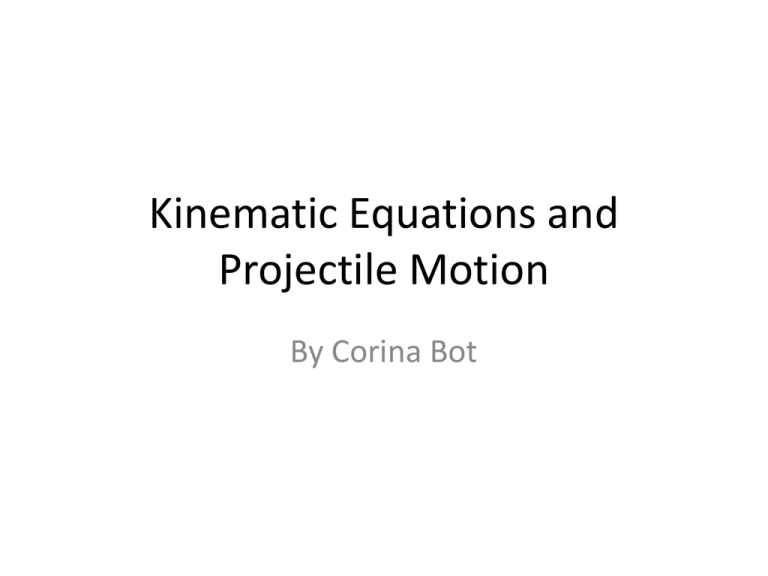
Kinematic Equations and Projectile Motion By Corina Bot Projectile Motion The speed in the x-direction is constant; in the y-direction the object moves with constant acceleration g. This photograph shows two balls that start to fall at the same time. The one on the right has an initial speed in the x-direction. It can be seen that vertical positions of the two balls are identical at identical times, while the horizontal position of the yellow ball increases linearly. wikipedia.org - Package follows a parabolic path and remains directly below the plane at all times. - As the package falls, it undergoes a vertical acceleration; there is a change in its vertical velocity. - This vertical acceleration is attributed to the downward force of gravity which acts upon the package. http://www.physicsclassroom.com/ Kinematic Equations for Constant Acceleration in Two Dimensions x Component (horizontal) vx = vxo + axt x = xo + vxot + ½ axt2 vx = vxo + 2ax(x – xo) y Component (vertical) vy = vyo + ayt y = yo + vyot + ½ ayt2 vy = vyo + 2ay(y – yo) - A cannonball being launched at an angle from a cannon atop of a very high cliff. - The cannonball follows a parabolic path. - As the cannonball rises towards its peak, it undergoes a downward acceleration. An upwardly moving cannonball which is slowing down is said to be undergoing a downward acceleration. v0y q0 v0x http://www.physicsclassroom.com/ Conceptual Example 3-6/pag. 59: Where does the apple land? A child sits upright in a wagon which is moving to the right at constant speed as shown. The child extends her hand and throws an apple straight upward (from her own point of view), while the wagon continues to travel forward at constant speed. If air resistance is neglected, will the apple land (a) behind the wagon, (b) in the wagon, or (c) in front of the wagon? "Physics" by Giancoli, 6th ed. A child sits upright in a wagon which is moving to the right at constant speed v0=20m/s, as indicated. The child extends her hand and throws an apple at an angle a = 27⁰, while the wagon continues to travel forward at constant speed. If air resistance is neglected, calculate distance traveled by the cart until apple reaches back the child’s hand. v0=20m/s General equations a = 27⁰ d? x v0 x t 1 2 y v t a t 0 y 2 y v0y Particular equations x d v ox t v o cos a t y 0 v oy t 1 2 g t 2 v0 time = t a v0x x d=? 1 2 v o sin a t g t 2 t=? d=? Particular equations x d v ox t v o cos a t y 0 v oy t 1 g t 2 2 1 2 v o sin a t g t 2 v0=20m/s t=? d=? a = 27⁰ d? y From horizontal (x) equation: v0y x d v ox t v o cos a t d v o cos a t m t (1) Substitute t in equation (3) to get d: m t s d 17 . 82 m s d 32 . 9 m 1 .8 s d=? x y 0 v oy t s d 17 . 82 a v0x From vertical (y) equation: m d 20 cos 27 t s d 17 . 82 v0 time = t v o sin a t 1 1 g t 2 g t 2 2 v o sin a t 0 2 m 1 m 2 sin 27 t 9 . 8 2 t 0 20 s 2 s 9 . 07 t 4 . 9 t 2 9 . 07 4 . 9 t 0 4 . 9 t 9 . 07 t 1 . 85 s 0 :t 1 2 g t 2
